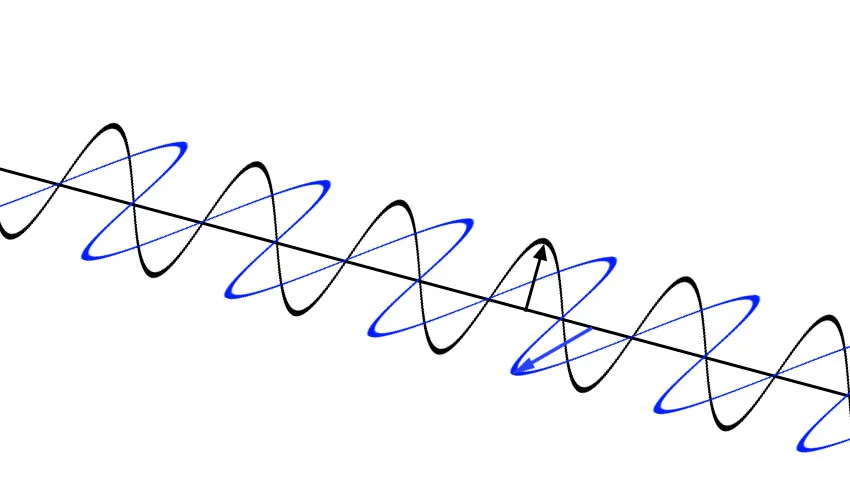Light is a transverse wave: the wave is S-shaped, with the curves of the S at right angles to the direction it travels. Essentially, the wave vibrates up and down as it travels forwards.
But 'up' and 'down' are not fixed directions. The vibrations could be vertical, horizontal, or at any angle in between. In fact, the waves that make up sunlight, for example, are evenly distributed across all angles.
Polarised light, however, is made up of waves with the vibrations at only one angle.
Some animals can see in polarised light, including the fiddler crabs and mantis shrimp in David Attenborough's Life in Colour.

How is light polarised?
Light can be polarised by passing it through a polarising filter. A polarising filter has all its molecules aligned in the same direction. As a result, only waves with vibration aligned in the same direction can pass through.
Imagine holding a skipping rope so that it passes between the posts of a picket fence, and waving it up and down. The vertically aligned waves will be able to pass between the gap in the fence posts. But if you wave it from side to side, the waves will be blocked.
Since only a small selection of the waves can pass through a polarising filter, the overall intensity of the light is reduced. This is why sunglasses can be polarised: to reduce brightness and glare without compromising your vision.
Light is also partially polarised when it bounces off a shiny surface. For example, the light that reflects off a horizontal surface, such as a puddle, is mostly horizontally polarised. Polarised sunglasses are usually vertically polarised to reduce the glare from puddles or wet roads.
Read more about light: